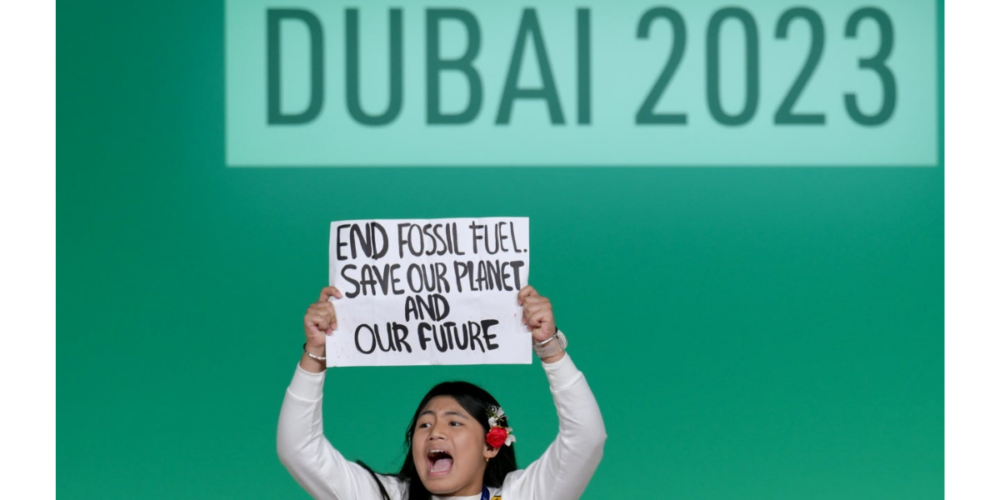The 28th edition of the United Nation’s Climate Change Conference (COP 28) took place in United Arab Emirates this December. Controversially presided by the head of the Abu Dhabi National Oil Company, COP 28 once again showed its modest range of action, wrapped in passive political language. On the fringe of it, you could see the protests and the genuine concern of governments hit the most by the climate breakdown; in the main discussions and the statements, we got well-polished and politically measured expressions of concern.
The outcomes, messages, and media coverage of COP 28 reinforce the Communist Party’s long-standing position that the super-exploitation of the natural world is central to the capitalist system, and that the much needed immediate action in protection of the continuing existence of life on earth is against the immediate interests of imperialism.
In the carefully worded statements from COP, the dominant drive of capital to maintain business as usual is matched only by the determination to profit from the business of environmental interventions once they become inevitable. States and corporations dominating the fossil fuel market persist in maintaining the world’s reliance on said fuels and limit the discourse in the realm of improving efficiency, instead of stopping exploitation and environmental damage. Such is the nature of capitalism.
Just like in previous COP meetings, the delegations showed concern that the investors did not show enough motivation or confidence to engage in “climate finance”. As we noted already, portfolios of international capital are critically entangled with the fossil fuels industry, and signals that would give such investors confidence to engage in climate finance can only be based on promises of maintaining their monopoly positions in the future. Even then, climate action would not move past “carbon offsets” and accelerated exploitation of most of the world.
When COP statements ask for, for example “phasing out inefficient fossil fuel subsidies”, the silent part of the message is that the “efficient subsidies” in the West can stay and maintain the status quo. It just adds up to the perverse idea of offsetting climate change: the West simply staples receipts for its emissions and exploitation of nature to its former colonies. When control over African forests is sold to carbon offsetting merchants, it just shows how many of the old colonial patterns are allowed to replicate in the modern stage of capitalism, enclosed in the newly developed systems of “climate finance” exploiting the catastrophe the planet has been taken into—by exploitation.
The inclusion of “transitioning away from fossil fuels in energy systems” in the final COP statement has been hailed as a major victory in EU and Ireland: Eamon Ryan received praise as EU’s lead negotiator for getting the “fossil fuels” in the statement for the first time in the history of COP meetings. A cursory glance at the language of the quoted mention demonstrates both the weak “transitioning away” and the carefully fenced “in energy systems” clauses; yet another example of loophole-rich and action-poor language of COP. There is hope in climate action, but it is not here.
The hope, and the only way to achieve any of the climate goals scientists have repeatedly outlined, lies in freeing the economy from the rule of capital. Climate action must be strategically planned, executed through mobilisation of available resources, and cannot rely on exploitation of workers, at home or abroad. At this alarming point in history, as the world is taken by the globalised capital past many tipping points, we critically support all necessary organising working to stop this suicidal process. COP needs to show that it is something more than a window dressing, conscience-cleansing exercise limiting the imagination in international, collective climate action.
What we saw in UAE this year, and what is predicted to happen in next year’s COP in Azerbaijan limits the hope of those who seek change and action. If celebrating the mention of fossil fuels as a major culprit of the climate emergency is the dominant narrative, then taking action is surely well beyond our expectation. The direction COP is taking is simply: not limiting those who seek new business plans, profiting from the climate emergency and deepening the exploitation of the workers.






